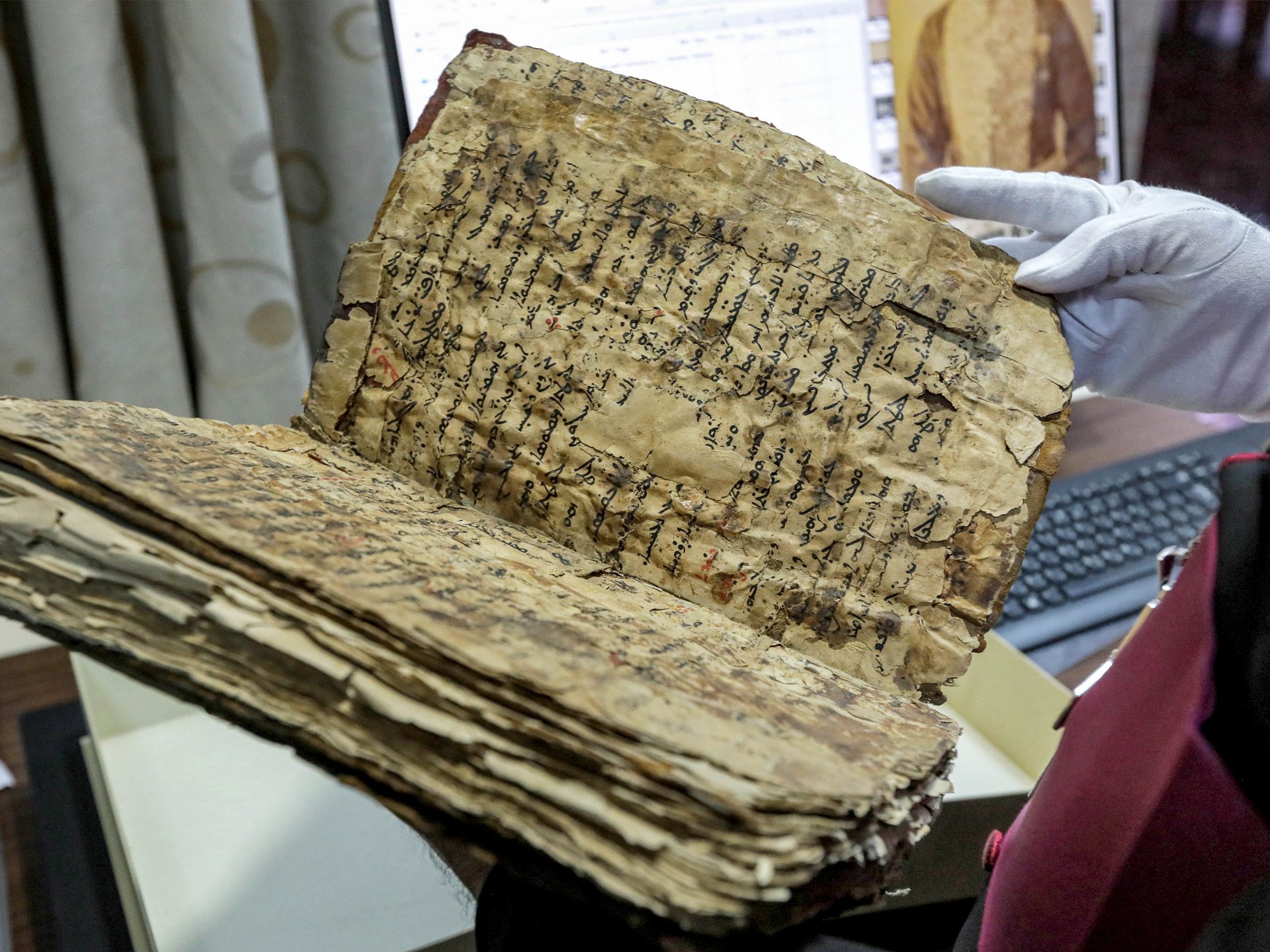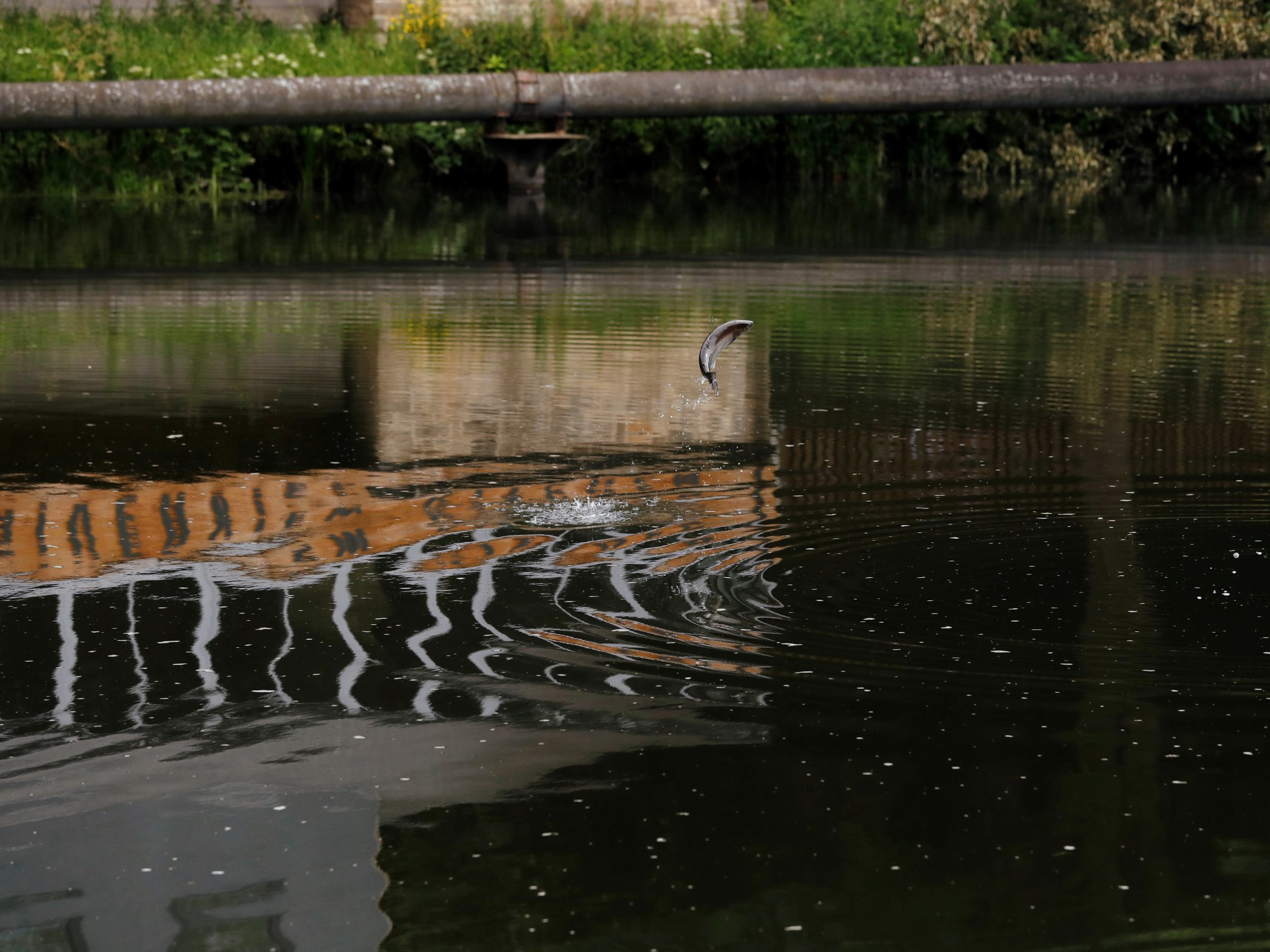Photos: Iraq’s Christians fight to save ancient language
Iraq’s conflict-scarred Christian community is launching a new television channel as part of efforts to save their dying, 2,000-year-old language.
Syriac, an ancient dialect of Aramaic, was traditionally the language spoken by Christians in Iraq and neighbouring Syria, mostly in homes but also in some schools, during church services and now, on al-Syriania TV.
But Syriac-speaking communities in the two countries have declined over the years, owing to decades of conflict driving many to seek safety in other countries.
“We speak Syriac at home, but unfortunately I feel that our language is disappearing slowly but surely,” said Mariam Albert, a 35-year-old news presenter on al-Syriania.
“It is important to have a television station that represents us,” she said of the station launched in April by the Iraqi government.
Programmes, from cinema to art and history, are presented in colloquial Syriac, Albert said, while news bulletins are in classical Syriac, a form not understood by everyone.
“Once upon a time, Syriac was a language widespread across the Middle East,” station director Jack Anwia said, adding that Baghdad has a duty “to keep it from extinction”.
“The beauty about Iraq is its cultural and religious diversity,” he said.
Iraq is known as the Cradle of Civilisation, including the ancient Sumerians and Babylonians, who produced the earliest known written legal code. The country was also home to the city of Ur, which the Bible cites as Abraham’s birthplace.
Before the 2003 United States-led invasion of the oil-rich country, Iraq was home to about 1.5 million Christians. Since then, their population has declined to roughly 400,000, mostly in the north.
The earliest written record of Syriac dates to the first or second century BC and the language reached its peak between the fifth and seventh centuries AD.
With the seventh-century Islamic conquests, more people in the region began speaking Arabic – by the 11th century, Syriac was in decline.
In 2014, days before ISIL (ISIS) fighters seized swaths of northern Iraq, the Chaldean Catholic archbishop of Mosul left the city, salvaging a trove of centuries-old Syriac manuscripts.
About 1,700 manuscripts and 1,400 books – some dating to the 11th century – are now conserved in Erbil’s Digital Centre for Eastern Manuscripts, which is supported by UNESCO, USAID and the Dominican Order.




